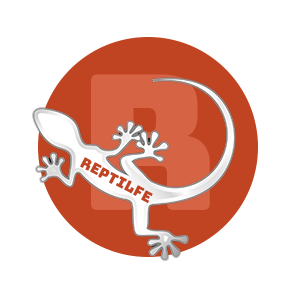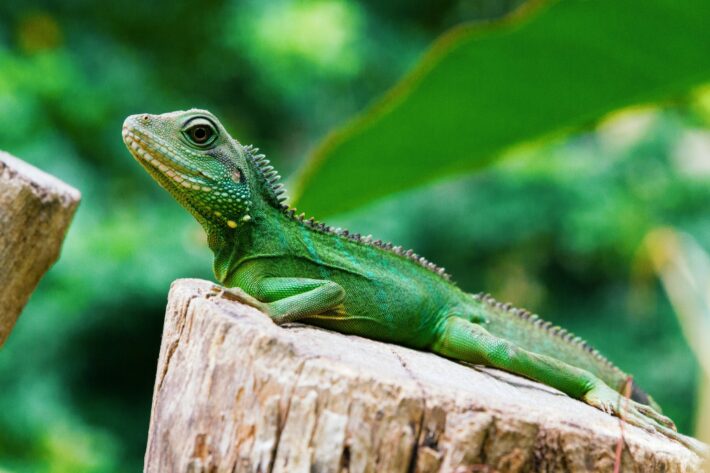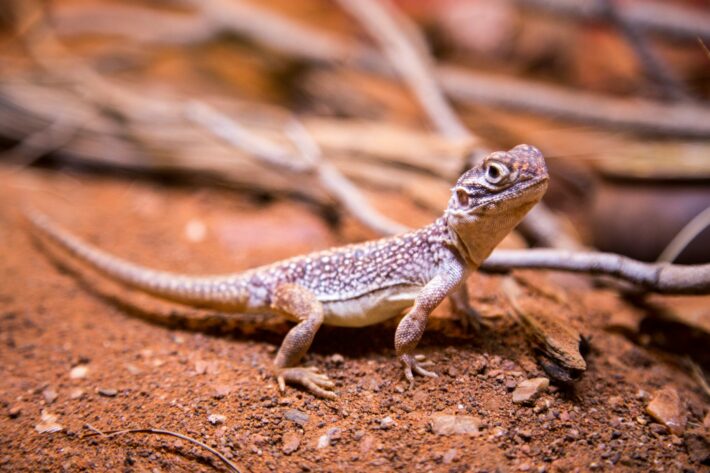Unlocking the secrets to a vibrant and robust reptilian companion begins with understanding the signs of a healthy reptile and implementing effective measures to ensure its overall well-being. Whether you’re an experienced reptile enthusiast or a first-time owner, this comprehensive guide will equip you with the essential knowledge to spot the telltale indicators of a thriving reptile.
From assessing physical appearance and behavior to creating a suitable habitat and providing proper nutrition, we’ll delve into the vital aspects of reptile care that contribute to their longevity and happiness. Get ready to embark on a journey towards maintaining a healthy and contented reptilian friend.
How can I determine if my reptile is in good health?
To evaluate your reptile’s well-being, pay attention to its eating patterns, energy levels, and skin condition. A healthy reptile should display a hearty appetite, be active and alert, and have smooth and unblemished skin.
Additionally, check for any abnormalities in their feces or shedding process. Routine visits to a reptile-savvy veterinarian can provide expert insight into their overall health through physical examinations and diagnostic tests. Remember, maintaining a keen eye on these indicators will help ensure the long-term health and happiness of your scaly friend.
What are the physical signs of a healthy reptile?
Physical signs of a thriving reptile include clear and bright eyes, vibrant and well-hydrated skin, a smooth and intact shell or scales, and healthy body weight. They should exhibit coordinated movements without any limping or stiffness. Additionally, their respiratory rate should be steady and without wheezing or labored breathing.
A healthy reptile will also have a strong appetite and proper digestion. Regularly monitoring these physical indicators will enable you to promptly identify any potential health issues and take appropriate action to ensure the well-being of your reptilian companion.
What behaviors indicate a reptile’s well-being?
A content and healthy reptile will exhibit active and alert behavior, engaging with its environment and showing curiosity. They will move smoothly, without any signs of lethargy or difficulty. Furthermore, a balanced reptile will demonstrate normal feeding behavior, eagerly consuming appropriate portions of food.
Another positive indicator is a reptile that engages in basking or thermoregulation activities, seeking out optimal temperature zones in its enclosure. By observing these behaviors, you can gauge your reptile’s overall well-being and address any concerns promptly to maintain optimal health.
How do I ensure proper nutrition for my reptile’s well-being?
Providing a well-balanced and species-specific diet is essential for your reptile’s well-being. Research their dietary requirements, including the appropriate ratio of proteins, vegetables, fruits, and supplements. Offer a variety of food items to ensure nutritional diversity.
Gut-loading or dusting prey items with appropriate supplements can enhance their nutritional value. Regularly monitor your reptile’s weight and adjust feeding amounts accordingly. Additionally, ensure access to clean, fresh water at all times. Consulting with a reptile-savvy veterinarian or herpetologist can offer valuable guidance on tailoring a nutrition plan to meet your reptile’s specific needs.
What environmental factors contribute to a healthy reptile?
Creating a suitable habitat is crucial for your reptile’s overall health. Adequate temperature gradients should be established, allowing them to regulate their body temperature effectively. Provide a UVB light source to support their calcium metabolism and overall well-being. Proper humidity levels are essential, varying depending on the species.
Enrich the enclosure with appropriate hiding spots, climbing structures, and substrate to facilitate natural behaviors and reduce stress. Regular cleaning and maintenance of the habitat, including removing waste and refreshing water sources, are vital for a clean and hygienic environment that promotes your reptile’s health.
What are the key indicators of a happy and thriving reptile?
A happy and thriving reptile will display a combination of physical and behavioral indicators. Physical signs include bright and clear eyes, well-hydrated and supple skin, and healthy body weight. Behaviors such as active exploration, basking, normal feeding responses, and social interactions (if applicable to the species) indicate contentment.
Additionally, they should exhibit regular shedding and maintain consistent energy levels. By closely monitoring these indicators and addressing any concerns promptly, you can ensure that your reptile remains happy, healthy, and able to enjoy a high quality of life.
What steps can I take to maintain my reptile’s overall well-being?
To maintain your reptile’s overall well-being, provide a suitable habitat that meets its specific requirements, including proper temperature, lighting, and humidity levels. Offer a balanced and nutritious diet tailored to their species.
Regularly observe and monitor their physical appearance, behavior, and appetite for any changes or signs of illness. Keep their enclosure clean and provide mental and physical stimulation through enrichment activities.
Schedule regular check-ups with a reptile-savvy veterinarian to address any health concerns proactively. By implementing these steps, you can ensure the optimal well-being and longevity of your reptilian companion.
What signs should I look for to assess the vitality of my reptile?
Assessing the vitality of your reptile involves observing various factors. Look for signs of alertness, such as bright eyes, responsive behavior, and an active demeanor. Monitor their eating habits, ensuring a healthy appetite and proper digestion.
Check for any changes in weight or physical appearance, such as skin abnormalities or lesions. Observe their mobility, ensuring smooth movements without any signs of lameness or difficulty.
Regularly assess their respiratory function, listening for any wheezing or abnormal breathing sounds. By remaining attentive to these signs, you can quickly identify any potential issues and take appropriate measures to ensure your reptile’s vitality.
How important is a regular veterinary check-up for reptiles?
Regular veterinary check-ups are vital for maintaining your reptile’s health and detecting potential issues early on. Reptiles are experts at hiding signs of illness, making professional evaluations crucial. During check-ups, a reptile-savvy veterinarian can perform thorough physical examinations, monitor weight and growth, assess organ function, and recommend appropriate preventive measures.
They may also provide guidance on diet, habitat, and overall care tailored to your reptile’s needs. Routine veterinary visits allow for proactive management, ensuring that any underlying health concerns are promptly addressed, promoting your reptile’s well-being, and minimizing the risk of serious health issues.
What are the common health issues in reptiles and how can I prevent them?
Reptiles may be prone to various health issues, including respiratory infections, metabolic bone disease, parasitic infestations, and nutritional deficiencies. Preventive measures include maintaining appropriate environmental conditions, providing a balanced diet, and offering regular access to clean water.
Ensure proper hygiene and cleanliness in the enclosure, minimizing the risk of bacterial or fungal infections. Avoid overcrowding and quarantine new reptiles to prevent the spread of diseases. Regular veterinary check-ups, fecal examinations, and preventive treatments can help identify and address health issues early on, reducing the risk of complications and promoting a healthier reptile.
In this table, relevant information regarding common health issues in reptiles, preventive measures, and signs to watch for are provided.
| Common Health Issues | Prevention Measures | Signs to Watch For |
|---|---|---|
| Respiratory Infections | Ensure proper ventilation and humidity levels in the enclosure. Maintain cleanliness and hygiene. | Labored breathing, wheezing, nasal discharge, open-mouth breathing. |
| Metabolic Bone Disease | Provide appropriate UVB lighting for proper calcium metabolism. Offer a well-balanced diet with calcium and vitamin D3 supplementation. | Weakness, deformities, soft or brittle bones, difficulty moving. |
| Parasitic Infestations | Practice good hygiene and regularly clean the enclosure. Quarantine new reptiles before introducing them to existing ones. | Weight loss, poor appetite, visible parasites (ticks, mites), abnormal behavior. |
| Nutritional Deficiencies | Offer a varied and species-specific diet. Ensure proper calcium, vitamins, and minerals in their food or through supplementation. | Poor growth, weakness, muscle tremors, soft or discolored shell/scales. |
| Reproductive Disorders | Provide appropriate nesting and breeding conditions. Avoid overbreeding and excessive egg-laying. | Failure to lay eggs, egg binding, abdominal swelling, lethargy. |
What role do temperature and humidity play in a reptile’s well-being?
Temperature and humidity are crucial factors in a reptile’s well-being. Reptiles are ectothermic, relying on external sources of heat to regulate their body temperature. Providing a temperature gradient within their enclosure allows them to move between warmer and cooler areas as needed.
This enables essential metabolic functions, digestion, and thermoregulation. Humidity levels vary between reptile species and should be maintained within the appropriate range to support shedding hydration, and respiratory health. Understanding and replicating the temperature and humidity requirements specific to your reptile’s natural habitat is essential for promoting its overall well-being.
What are the warning signs of a reptile’s illness or distress?
Warning signs of a reptile’s illness or distress may include loss of appetite, abnormal feces, lethargy, weight loss, changes in behavior, swollen joints, difficulty breathing, skin lesions, or discharge from the eyes, nose, or mouth. Additional indicators can be regurgitation, excessive shedding, or visible parasites.
Any sudden or significant changes in their appearance, behavior, or bodily functions should be taken seriously and prompt a veterinary evaluation. Being vigilant and recognizing these warning signs will allow you to seek appropriate veterinary care and address any underlying health concerns promptly.
How can I provide proper mental stimulation for my reptile?
Reptiles, despite their seemingly solitary nature, benefit from mental stimulation in their captive environment. Enrichment activities can include providing climbing structures, hiding spots, tunnels, and interactive feeding techniques.
Offering novel objects or rearranging their habitat periodically can simulate a changing environment and encourage exploration. Social interaction with other compatible reptiles, if applicable to the species, can also provide mental stimulation.
Additionally, providing opportunities for natural behaviors such as basking, burrowing, or hunting can contribute to their overall mental well-being. By incorporating these stimulating elements, you can enhance your reptile’s quality of life and prevent boredom or behavioral issues.
What are the best practices for maintaining a clean and hygienic reptile enclosure?
Maintaining a clean and hygienic reptile enclosure is crucial for preventing the buildup of harmful bacteria, fungi, or parasites. Best practices include regularly removing feces and uneaten food, spot-cleaning soiled areas, and replacing substrate as needed.
Disinfect the enclosure periodically using reptile-safe cleaners, ensuring to rinse thoroughly and remove any residue. Clean and disinfect water and food bowls regularly to prevent bacterial growth.
Avoid using harsh chemicals or cleaning agents that may be toxic to reptiles. By following these best practices, you can provide a clean and hygienic environment that promotes your reptile’s health and reduces the risk of infections.
What steps can I take to ensure my reptile’s safety and security?
To ensure your reptile’s safety and security, start by providing an escape-proof enclosure with appropriate locks and closures. Conduct regular safety checks to identify any potential hazards or areas where your reptile could get stuck or injured.
Avoid exposing them to harmful substances, such as toxic plants or chemicals. Use caution when handling or introducing new items to their environment to minimize stress or injury. Secure electrical cords and ensure that heat sources are properly installed and monitored.
By taking proactive measures to create a safe and secure environment, you can protect your reptile from potential harm and provide peace of mind for their well-being.
Given these points
Understanding the signs of a healthy reptile and ensuring their well-being is of utmost importance for reptile owners. By closely monitoring their reptile’s behavior, physical appearance, and overall vitality, owners can quickly identify any potential health issues and take appropriate measures.
Regular veterinary check-ups, maintaining optimal environmental conditions, providing a balanced diet, and offering mental stimulation are crucial for promoting a reptile’s well-being.
Additionally, preventive measures such as proper hygiene, temperature, and humidity control, as well as addressing common health issues, contribute to their overall health and longevity. By prioritizing the health and well-being of their reptile companions, owners can establish a strong bond and enjoy the rewarding experience of caring for these unique creatures.







